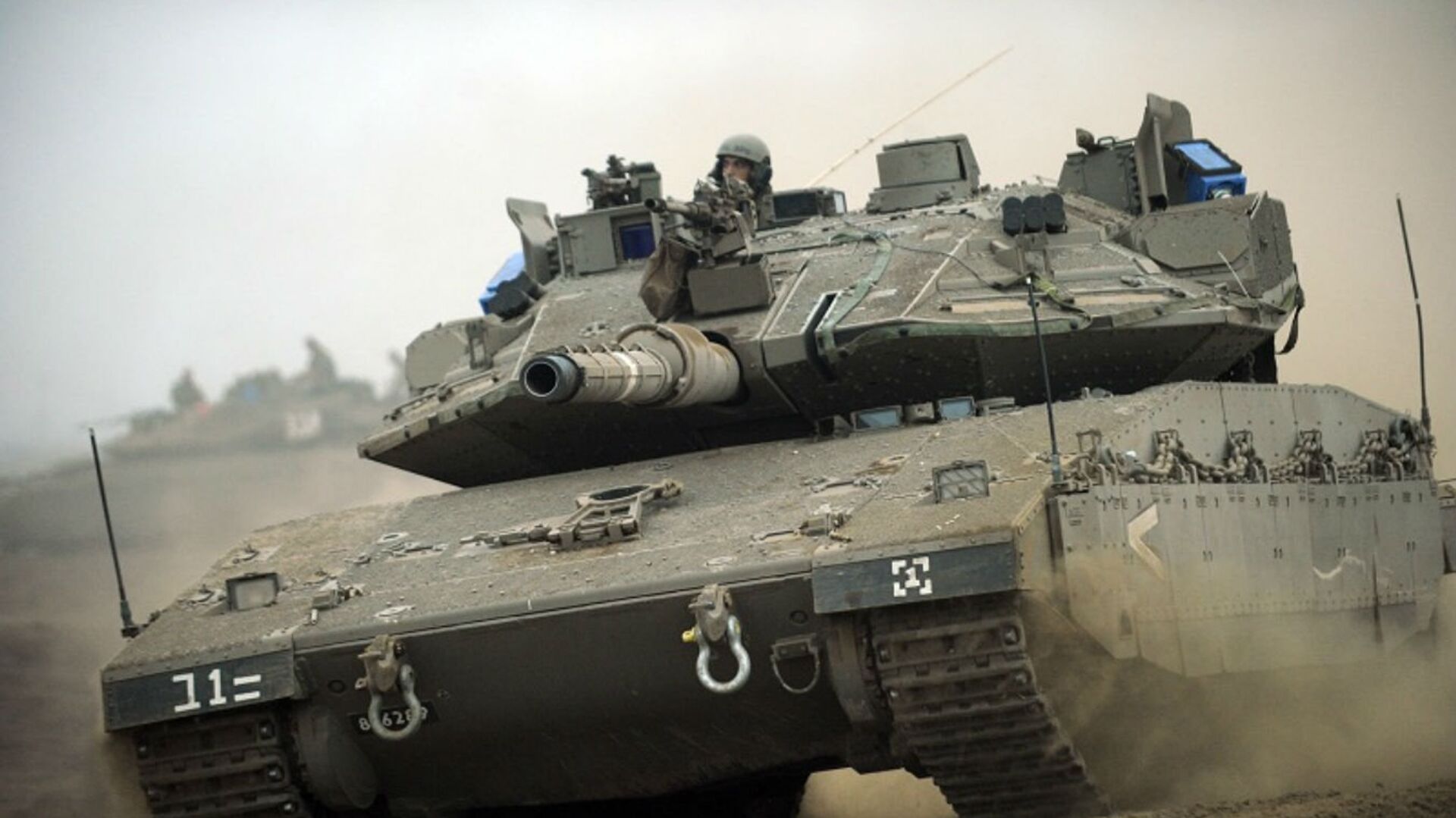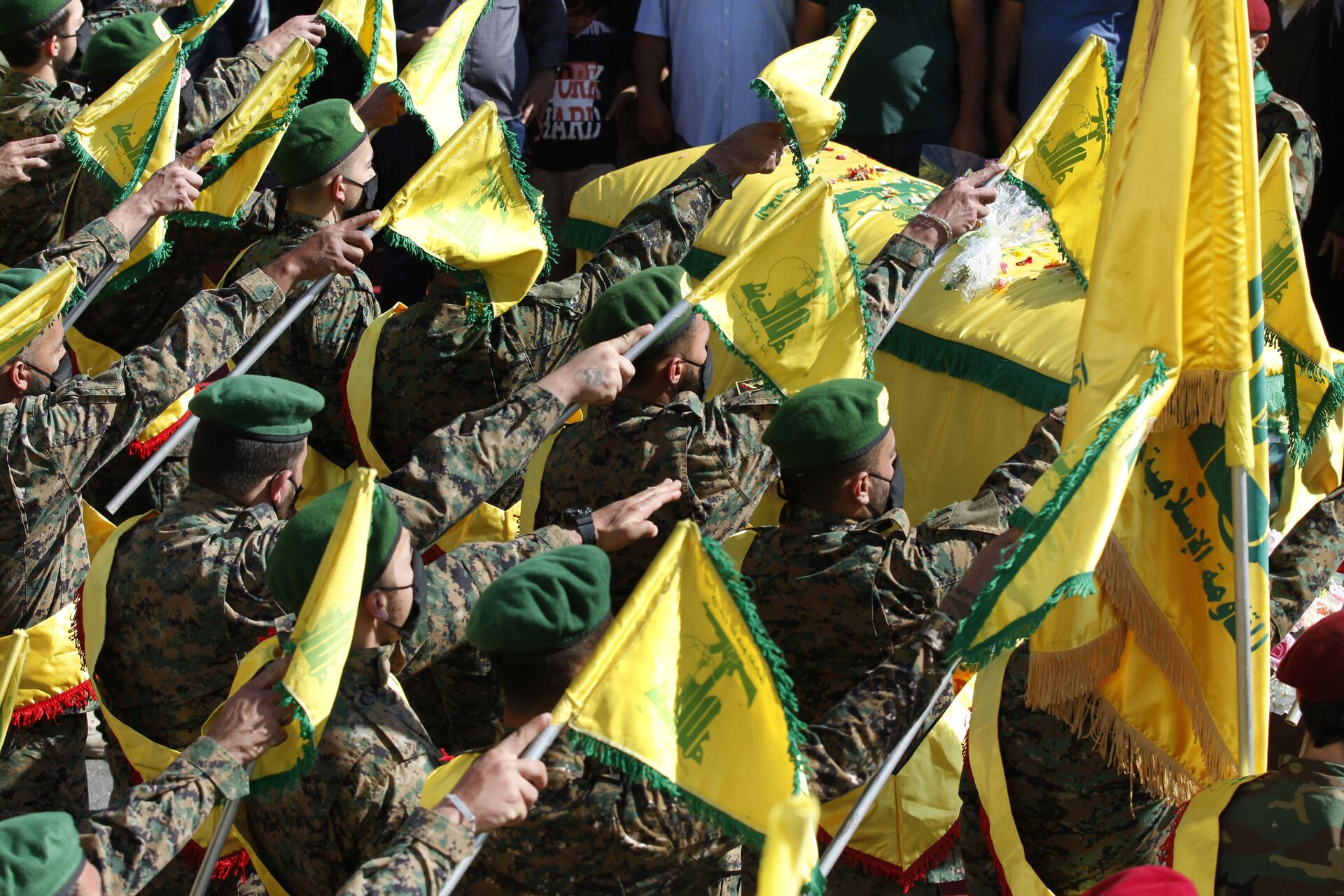https://sputnikglobe.com/20220614/abraham-accords-members-to-meet-in-july-to-discuss-common-challenges-and-security-cooperation-1096294267.html
Abraham Accords Members to Meet in July to Discuss Common Challenges and Security Cooperation
Abraham Accords Members to Meet in July to Discuss Common Challenges and Security Cooperation
Sputnik International
In September 2020, Israel, the United Arab Emirates and Bahrain signed a historic normalisation agreement that paved the way for the establishment of ties with... 14.06.2022, Sputnik International
2022-06-14T05:33+0000
2022-06-14T05:33+0000
2023-01-15T17:26+0000
middle east
saudi arabia
uae
israel
https://cdn1.img.sputnikglobe.com/img/102576/74/1025767445_0:29:1354:790_1920x0_80_0_0_aa07980a724080a29f217a9a578e70ec.jpg
Signatories of the Abraham Accords - normalisation pacts between Israel, the United Arab Emirates, Bahrain and Morocco - are set to convene in mid-July for a second time, following the Negev Summit that was held in March.The meeting is due to take place in the Bahraini capital, Manama, and will also include participants from Jordan, Egypt and the United States.Burning IssuesAlthough it is still unknown what's on the agenda, Yusuf Mubarak, a Manama-based political commentator, says the meeting is expected to follow up on the topics of the Negev Summit and will provide "an in-depth look" to issues pertaining to the developments in Ukraine and Iran.Regarding Ukraine, officials are expected to discuss the disrupted food and energy security that was prompted by the start of the hostilities in the European country on 24 February. On the topic of Iran, talks will focus on the shaping nuclear deal with the Islamic Republic and the activity of the country's allies in the region, such as the Houthi rebels in Yemen and the Lebanese Shiite group Hezbollah.Egypt and several Gulf states have grown increasingly concerned with the recent developments in the region. In Lebanon, Hezbollah has managed to retain its seats in the legislature after May's parliamentary elections despite the March 8 Alliance losing a majority at the chamber.In Yemen, the Saudi-led coalition has failed to eliminate the Houthi rebels that control most of the country. The coalition's inability to achieve victory has pushed Riyadh to sign a truce with the rebel group and extend it by another two months. Experts, however, have already warned that it is just a matter of time until tensions flare up again. If that happens, the Riyadh-led bloc will be forced to react, and they will need weapons to do so.Potential Military Alliance?Talk of creating a joint military front, some sort of a regional NATO, have been raised before. Last year, it was reported that the UAE, Israel, Egypt and Bahrain have been working on creating such an alliance to curb Iran and its allies across the Middle East. Apart from several meetings, however, words have not translated into action.Part of the reason for this, says Mubarak, has been the eruption of the coronavirus pandemic and the travel restrictions it triggered. Another factor that stalled progress was political instability in Israel, that has gone through four rounds of elections in the past three years, as well as tensions between the Jewish state and Hamas.Now, however, believes the political analyst, time has come to translate words into action; Israel, the UAE and Bahrain are expected to lead the new alliance.Some Gulf nations that don't currently have any official ties with Israel have recently started making signs that they would be interested in getting closer to the Jewish state. The Kuwaiti newspaper A-Seyyasah, for example, published a front page article about the opportunities Arab nations are missing by not reaching a deal with officials in Jerusalem. In Saudi Arabia, the media has started giving a platform to interviews with Israeli politicians and experts.
saudi arabia
uae
israel
Sputnik International
feedback@sputniknews.com
+74956456601
MIA „Rossiya Segodnya“
2022
News
en_EN
Sputnik International
feedback@sputniknews.com
+74956456601
MIA „Rossiya Segodnya“
Sputnik International
feedback@sputniknews.com
+74956456601
MIA „Rossiya Segodnya“
middle east, saudi arabia, uae, israel
middle east, saudi arabia, uae, israel
Abraham Accords Members to Meet in July to Discuss Common Challenges and Security Cooperation
05:33 GMT 14.06.2022 (Updated: 17:26 GMT 15.01.2023) In September 2020, Israel, the United Arab Emirates and Bahrain signed a historic normalisation agreement that paved the way for the establishment of ties with other Muslim nations -- Sudan and Morocco. Since then all parties sealed a number of important pacts in the spheres of economy and defence.
Signatories of the
Abraham Accords - normalisation pacts between Israel, the United Arab Emirates, Bahrain and Morocco - are set to convene in mid-July for a second time, following the Negev Summit that was held in March.
The meeting is due to take place in the Bahraini capital, Manama, and will also include participants from Jordan, Egypt and the United States.
Although it is still unknown what's on the agenda, Yusuf Mubarak, a Manama-based political commentator, says the meeting is expected to follow up on the topics of the Negev Summit and will provide "an in-depth look" to issues pertaining to the developments in Ukraine and Iran.
Regarding Ukraine, officials are expected to discuss the disrupted food and energy security that was prompted by the start of the hostilities in the European country on 24 February. On the topic of Iran, talks will focus on the shaping nuclear deal with the Islamic Republic and the activity of the country's allies in the region, such as the Houthi rebels in Yemen and the Lebanese Shiite group Hezbollah.
Egypt and several Gulf states have grown increasingly concerned with the recent developments in the region. In Lebanon, Hezbollah has managed to retain its seats in the legislature after May's parliamentary elections
despite the March 8 Alliance losing a majority at the chamber.In Yemen, the
Saudi-led coalition has failed to eliminate the Houthi rebels that control most of the country. The coalition's inability to achieve victory has pushed Riyadh to sign a truce with the rebel group and extend it by another two months. Experts, however, have already warned that it is just a matter of time until tensions flare up again. If that happens, the Riyadh-led bloc will be forced to react, and they will need weapons to do so.
"One interesting topic [that's expected to be discussed during the summit - ed.] is the Israeli Iron Beam system," says Mubarak, referring to a directed-energy weapon air defence system developed by Israel's Rafael. "It is [attractive] due to its dual purpose: cheaply downing enemy projectiles and winning the hearts and minds of allies."
Potential Military Alliance?
Talk of creating a joint military front, some sort of a regional NATO, have been raised before. Last year, it was reported that the UAE, Israel, Egypt and Bahrain have been working on creating such an alliance to curb Iran and its allies across the Middle East. Apart from several meetings, however, words have not translated into action.
Part of the reason for this, says Mubarak, has been the eruption of the coronavirus pandemic and the travel restrictions it triggered. Another factor that stalled progress was political instability in Israel, that has gone through four rounds of elections in the past three years, as well as tensions between the Jewish state and Hamas.
Now, however, believes the political analyst, time has come to translate words into action; Israel, the UAE and Bahrain are expected to lead the new alliance.
"The two Gulf countries have no war legacy with Israel. Nor do they have a major Palestinian presence - the two factors that contribute to the cold peace [like the one Israel has with Jordan and Egypt -ed.]"
"[Once this cooperation proves to be successful], it will be beneficial in proposing the implementation of these achievements in Egypt, Jordan, Morocco, Sudan and any future peace-endorsing regional country."
Some Gulf nations that don't currently have any official ties with Israel have recently started making signs that they would be interested in
getting closer to the Jewish state. The Kuwaiti newspaper A-Seyyasah, for example, published a front page article about the opportunities Arab nations are missing by not reaching a deal with officials in Jerusalem. In Saudi Arabia, the media has started giving a platform to interviews with Israeli politicians and experts.
"Israel [already] has formal relations one way or another with four Gulf countries, albeit established decades apart. [But the upcoming] forum is anticipated to grant [a greenlight] to the already-agreed actions and hopefully new ones as well."



